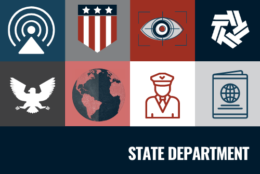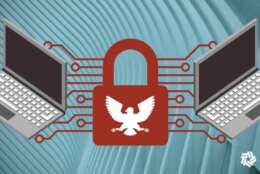Cybersecurity
-
During this webinar, you will learn how top defense and homeland IT security officials from the Department of Defense Information Network, U.S. Army Cyber Command and Cybersecurity and Infrastructure Security Agency are implementing new strategies and solutions around cybersecurity.
January 24, 2023 -
A modern CIO manages the company’s information technology strategy and how it supports the enterprise as a whole.
January 23, 2023 -
In today's Federal Newscast: The GAO is once again sounding the alarm on federal cybersecurity efforts. The Veterans Affairs Department is weeks away from taking its next step to modernize its supply chain systems. And OPM is hiring a chief learning officer.
January 23, 2023 -
Federal organizations like the Defense Department and agencies in the intelligence community manage large volumes of highly sensitive information. To protect that data, they operate classified networks that must meet specific cybersecurity guidelines.
January 18, 2023 -
In the last year, the Cybersecurity & Infrastructure Security Agency and executive orders from the Biden administration have assigned various new security mandates focused on zero trust.
January 17, 2023 -
Officials are concerned about adversaries targeting unclassified data and the employees who work with it.
January 16, 2023 -
The new year brought the opening of a new office at the State Department. It's called the Special Envoy for Critical and Emerging Technology. It has a list of responsibilities.
January 13, 2023 -
A non-profit think tank known as the Institute for Critical Infrastructure Technology assembled the thinking of more than 50 thinkers in both cybersecurity and infrastructure. The result is a book that is intended to inform the thinking of both government officials and operators with responsibility for critical infrastructure.
January 12, 2023 -
The Cybersecurity and Infrastructure Security Agency is keyed in on "cyber safety" to start 2023.
January 11, 2023 -
In today's Federal Newscast: Bad computer password practices could lead to phishing attacks at the Interior Department. 2022 Unclassified Defense Department procurement spending nearly hits an all-time high. And the penalty for unethical feds could hit over $70,000.
January 09, 2023 -
The past two years have catalyzed a fundamental shift in the way that government organizations need to think about security. COVID-19 introduced the need to securely enable remote work, an ongoing ransomware epidemic shows no signs of slowing down, and the Russian-Ukrainian conflict has stoked concerns of nation state attacks.
January 06, 2023 -
But a new national cyber strategy is just the tip of the iceberg for what to expect from federal cybersecurity policy in 2023.
January 06, 2023 -
The federal government is in the middle of a once-in-a-generation overhaul of network protection, propelled by presidential executive orders mandating a switch from perimeter-based security to zero trust architecture. Agencies must include application security (AppSec)…
January 05, 2023 -
So-called black swan events seem to be happening in flocks. The pandemic, the Russian invasion of Ukraine, earthquakes and floods. For government, it all adds up to the need for resilience and preparation.
January 05, 2023 -
How are you evolving your cyber strategy to ensure data security no matter where your data resides and how your users access it – on premise, in the cloud, in stream, at the edge? Learn the latest cyber strategies and tactics from experts across industry during our exclusive event.
January 05, 2023












